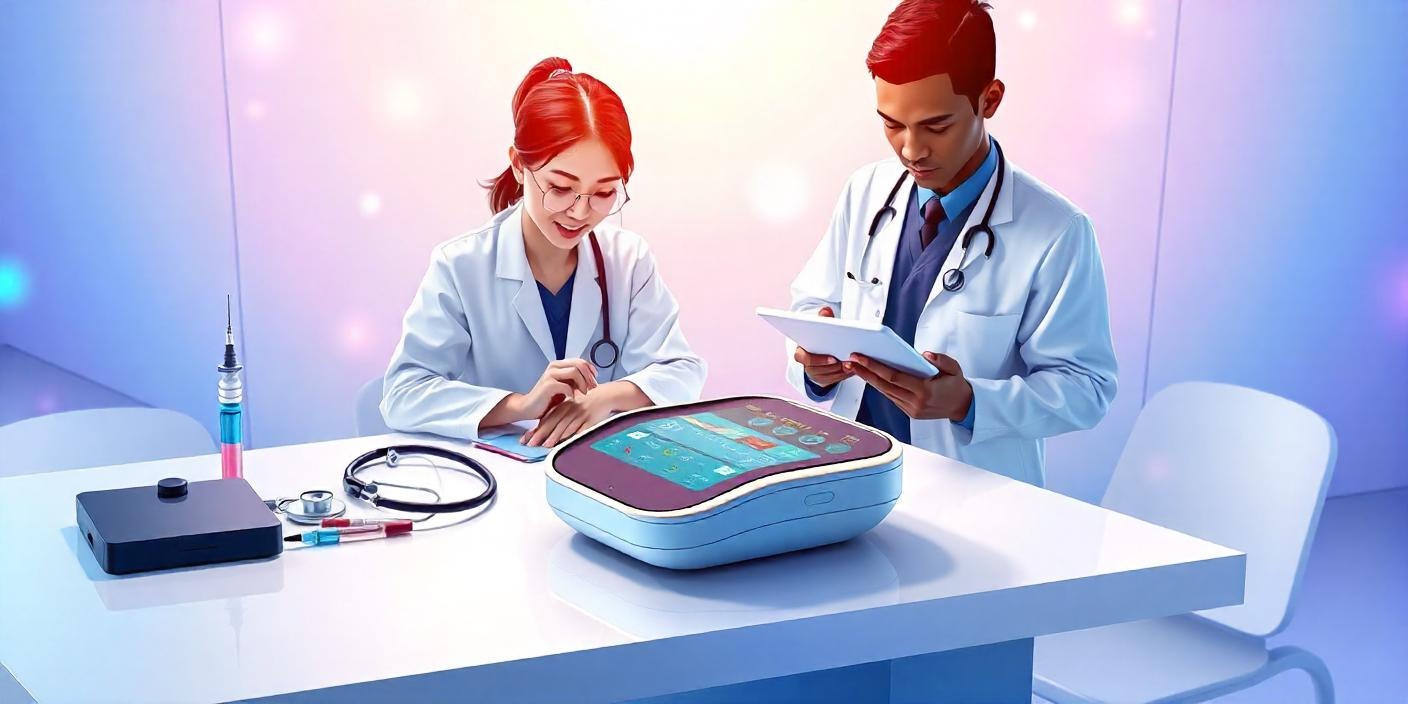The Role of IoT Medical Devices in Improving Healthcare: What are the Key Benefits?
The integration of the Internet of Things (IoT) in healthcare is rapidly transforming the medical field, especially with the proliferation of IoT-enabled medical devices. These devices connect to healthcare systems, allowing for the continuous monitoring and analysis of patients’ vital signs in real time.
The main benefits of IoT medical devices include improved patient care through constant monitoring, early detection of health issues, and more efficient healthcare services.
By transmitting patient data directly to healthcare providers, IoT devices enable timely interventions, reducing the need for frequent in-person visits and hospitalizations.
How Are IoT Medical Devices Enhancing Patient Safety and Care Efficiency?
IoT devices play a crucial role in enhancing patient safety and improving care efficiency. For instance, smart medical devices can track patients' conditions and send real-time data to healthcare providers. This allows medical teams to make faster, more informed decisions, which is particularly valuable in emergency scenarios. Companies like Philips Healthcare and Medtronic plc are at the forefront of this innovation. Philips’ connected health solutions, such as wearable monitors, enable continuous tracking of heart rates, blood pressure, and more, while Medtronic’s remote monitoring tools assist in managing chronic conditions like diabetes.
What Innovations Are Revolutionizing the IoT Medical Device Market?
Innovation in IoT medical devices is primarily driven by advances in connectivity and data analytics. New technologies such as 5G networks and cloud computing are enhancing the speed and accuracy of data transmission, enabling devices to process large amounts of health data more efficiently. Abbott Laboratories, for example, has introduced its FreeStyle Libre system, a continuous glucose monitoring system that allows real-time tracking of glucose levels for diabetic patients. This innovation is transforming how patients and doctors manage diabetes by providing timely insights into health trends. Furthermore, wearable devices such as those developed by ZOLL Medical Corporation are increasingly being used for remote patient monitoring, allowing for the quick detection of abnormal heart rhythms or respiratory problems.
What Challenges Are IoT Medical Devices Facing in Healthcare?
Despite their numerous benefits, IoT medical devices also face challenges, particularly related to cybersecurity, interoperability, and data privacy. Cybersecurity remains a major concern as sensitive health data is transmitted over networks. Companies like Siemens Healthineers are taking steps to mitigate these risks by implementing stronger encryption and secure communication protocols. Furthermore, IoT devices often operate on various platforms, which can lead to data silos and inefficiencies. To address this, many companies are focusing on adopting standardized data-sharing protocols like the FHIR standard, which allows healthcare providers to access and share patient data seamlessly across different IoT devices.
How Are Regulatory Bodies Ensuring the Safety and Compliance of IoT Medical Devices?
The regulation of IoT medical devices is critical to ensuring their safety and effectiveness. Regulatory bodies, such as the FDA and European Medicines Agency (EMA), have established guidelines to oversee the certification and use of these devices. For instance, the FDA requires that manufacturers submit detailed cybersecurity plans to protect medical devices from vulnerabilities. These regulations aim to ensure that IoT medical devices are both safe for patient use and compliant with local healthcare standards.
What is the Future of IoT Medical Devices in Healthcare?
The future of IoT in healthcare is promising, with the potential for widespread adoption across various medical disciplines. We can expect further advancements in AI and machine learning, which will allow IoT devices to predict health conditions before they become critical. For example, devices from Biotronik SE Co. KG and ResMed Inc. are already leveraging AI to analyze patient data for signs of deterioration, enabling preventative care. As the technology improves and more healthcare systems adopt these solutions, IoT medical devices will become indispensable tools for enhancing patient outcomes and reducing healthcare costs.
For more information visit at MarketResearchFuture
Other Trending Reports
Clinical Immunodiagnostic Market
Central Pain Syndrome Management Market



